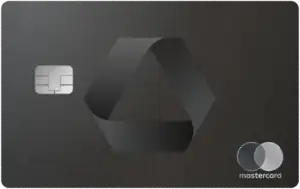How we earn our money
We finance our services on how-to-germany.com through affiliate programs.
When a user orders a financial product through our site and their application is approved, we may receive a commission from some providers. It’s important to note that this does not in any way influence our independent ratings and recommendations.
All the products we present on how-to-germany.com are selected for their quality, range of services, and excellent value for money.
Revolving Credit Cards in Germany
- Revolving credit cards offer a true credit line, allowing you to carry a balance and repay in monthly installments.
- Interest is charged on the unpaid balance, but many cards allow you to pay in full to avoid these costs.
- You can usually adjust your monthly repayment rate via the app — for example, switching between minimum payment and full balance.
- To get a revolving credit card, you typically require a German bank account and a positive Schufa credit score.
- Revolving cards are often easier to obtain than charge cards and are available with annual fees or as free credit cards without a basic charge.
- Many providers offer attractive perks such as travel insurance, cash back, bonus programs, or extended payment flexibility.
- Expats should use these cards with care, as missed payments and high interest rates can lead to long-term debt.
Best Revolving Credit Cards 2025
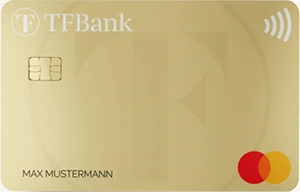
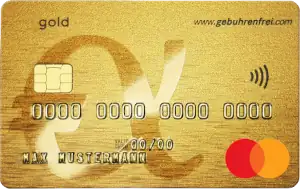
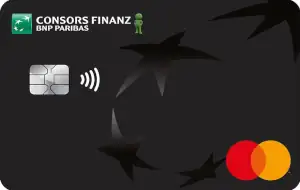
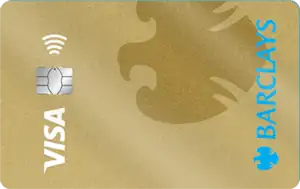
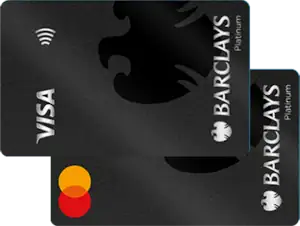
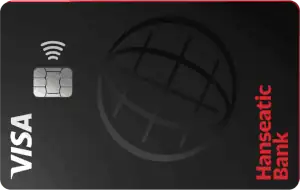
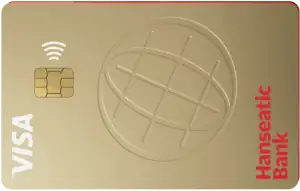
What Is a Revolving Credit Card?
Revolving credit cards are genuine credit cards that allow you to carry a balance from one month to the next. Unlike charge cards, which require full repayment at the end of each billing cycle, revolving cards give you the flexibility to pay off your balance in installments. This means you can borrow money over a longer period — but interest will be charged on any unpaid amount.
Each month, you receive a credit card bill that shows your total balance, the minimum payment due, and the applicable interest rate (APR, or annual percentage rate). You can choose how much you want to repay — from the minimum payment (usually around 3–5% of the total) up to the full balance. The remaining unpaid balance will carry over to the next month and accrue interest.
The average APR for revolving credit cards ranges from 15% to 20%. However, depending on your credit card provider, the fee may be significantly higher.
Revolving credit cards are particularly useful for making larger purchases, covering unexpected expenses, or managing short-term cash flow. However, due to the interest charges and potential for long-term debt, they should be used with financial discipline.
Most German credit card providers allow you to manage your repayment settings in the app — for example, increasing your monthly repayment rate or switching to full balance repayment to avoid interest entirely.
For expats, revolving credit cards can be a valuable tool — especially when you need purchasing flexibility or want to build your credit profile in Germany. However, it’s essential to understand how the repayment structure works and to monitor your credit card account regularly to maintain control.
Revolving cards available in Germany are typically either Visa or Mastercard credit cards.
Revolving Cards Compared to Other Credit Card Types
Revolving credit cards are one of the 4 main card types available in Germany. In addition to revolving credit cards, you can choose between prepaid, debit, and charge cards.
They differ significantly, especially in how the credit function and repayment work. While revolving cards allow flexible repayment over time, the other card types either offer no credit or require full repayment every month.
Expats in Germany should consider their financial habits, legal residence status, and spending behavior when deciding which type of card is best for them. Revolving cards are most suitable for users who value payment flexibility and can manage interest charges responsibly.
Quick Comparison Table
| Card Type | Credit Function | Interest Charged | Payment Structure |
|---|---|---|---|
| Prepaid Credit Cards | ❌ No | ❌ No | Pay in advance |
| Debit Cards | ❌ No | ❌ No | Immediate account deduction |
| Charge Cards | ✅ Yes (short-term) | ❌ No, if paid in full | Monthly full payment |
| Revolving Cards | ✅ Yes (long-term) | ✅ Yes, when using the installment payments | Monthly installments optional |
| This table offers a general overview. Terms can vary between banks and card providers. | |||
When to Choose a Revolving Card Over Other Types?
You should consider a revolving credit card if you:
- Want maximum flexibility in managing payments and cash flow.
- Occasionally need to split large purchases over multiple months.
- Are comfortable paying interest and understand how credit card billing works for this card type.
- Prefer a card with added benefits, such as travel insurance, purchase protection, or cash back, but don’t mind paying for it over time.
- Have a stable income and are building a long-term credit profile in Germany.
Revolving cards provide more freedom than other card types — but they also come with more responsibility. If you don’t pay off the full balance each month, you’ll incur high interest charges.
Always review the fine print, especially regarding minimum payment amounts, interest rates (APR), and how to adjust your repayment settings in the app.
Revolving credit cards offer a flexible credit line, but it is not guaranteed indefinitely. The credit card company can reduce or cancel the credit limit at any time — for example, due to missed payments, negative Schufa entries, or a decline in your creditworthiness. Likewise, cardholders can cancel the card or repay the balance in full at any time. The credit function remains active only as long as the cardholder meets the contractual obligations. Outstanding balances must be refunded at least partially each month.
How Revolving Credit Cards Work in Germany
Revolving credit cards are real credit cards that allow users to repay their balance in flexible installments. Unlike charge cards, which require full repayment each month, revolving cards give you the option to carry a balance and pay it off over time — with interest.
Monthly Billing Cycle and Statement
Each transaction made with a revolving card is recorded during the billing cycle, which typically spans 30 days or more. At the end of the cycle, you receive a credit card statement detailing your spending, any fees incurred, and the minimum payment due. This minimum payment typically accounts for 3–10% of the outstanding balance, but you have the option to pay more or settle the entire amount.
Flexible Repayment and Interest Charges
Revolving cards offer flexibility in how much you repay each month. Interest will accrue on the remaining balance, typically at rates ranging from 15% to 20% APR or higher.
If you repay the full amount, you can avoid interest charges altogether. Some cards also offer an interest-free grace period for new purchases. Depending on the provider, the interest-free payment term can be up to 60 days.
Linked Bank Account and Direct Debit
Some revolving credit cards are tied to a current account with the issuing bank, while others are more flexible and can be linked to any external account. In all cases, however, you must provide a German bank account (Girokonto) as the reference account for billing and repayments.
Suppose you decide to pay only a portion of the outstanding amount. In that case, interest will be charged on the remaining balance — typically at rates between 15% and 20% APR, or even higher, depending on the provider.
Monthly payments — whether minimum or full — are typically collected via direct debit. You can adjust the repayment settings in the card provider’s app, choosing either partial payments or full settlement, similar to a charge card.
Not all revolving credit cards in Germany offer automatic repayment via direct debit. With some providers, you must manually transfer the outstanding amount. If you miss the due date — even by a single day — interest may be charged retroactively from the original purchase date, not from the interest-free payment deadline. This can result in unexpectedly high costs, especially with cards charging an APR of over 20%. Always check the repayment terms and whether automatic payment is available to avoid hidden fees.
High Security of Revolving Credit Cards
Revolving credit cards are generally secure for cash withdrawals, cashless payments, and online purchases. Like charge cards, they offer protection against fraud and misuse, often better than debit cards.
- Payments are not deducted directly from your bank account, so there’s a buffer in case of suspicious activity.
- Most providers support chargeback procedures and buyer protection, particularly for goods that are faulty or undelivered.
- International card networks (Visa, Mastercard) guarantee additional security features, including real-time alerts and two-factor authentication.
- Many cards also include optional perks like extended warranties, travel insurance, or purchase protection, especially with premium cards.
Under EU regulations, users are only liable for up to €50 in unauthorized credit card transactions, provided they didn’t act with gross negligence and reported the issue promptly. Many card issuers waive even this amount, meaning you’re typically fully protected in case of loss or fraud.
Pros & Cons of Revolving Credit Cards
- High financial flexibility
- Flexible repayment: choose between full payment and partial installment payments
- Build or improve your credit score over time
- Widely accepted in Germany and internationally
- Many cards come with perks like travel insurance, cashback, or extended warranties
- Some cards are completely free with no annual fee
- High limits available for users with strong credit profiles
- Interest charges apply if you don’t pay the full balance — often 15–25% APR, or even higher
- Risk of accumulating long-term credit card debt if only minimum payments are made
- Requires active management to avoid missed payments or high interest rates
- Some providers charge hidden fees or offer unclear repayment structures
- Not all cards offer automatic full payment from your account, but require manual payments
German Revolving Cards — Eligibility & Application Requirements for Expats
Getting approved for a revolving credit card in Germany is generally easier than for a charge card, but expats still need to meet a few essential criteria. Card issuers typically assess both your legal residence and your financial situation before approval.
Revolving credit cards are frequently easier to obtain than charge cards because they come with lower starting credit limits, more flexible approval criteria, and automated decision processes. Many providers consider not just your Schufa score, but also income and bank activity. This allows broader access — especially for newcomers and freelancers — while keeping financial risk manageable for the issuer.
Schufa and Income Verification
Most revolving credit cards require a positive Schufa score and proof of income. The Schufa check helps banks assess your creditworthiness. If you’re new to Germany, you may not have a German credit history and Schufa record yet — which can make approvals more difficult or limit your credit line. A stable income (usually through regular salary payments or documented self-employment) is often required.
The Schufa is Germany’s main credit bureau. It tracks financial behavior, such as loan repayments, bank accounts, and credit card usage, to calculate a personal credit score. Since expats typically arrive without a Schufa record, banks may see them as “unknown risk,” which can limit or delay credit card approval. Some providers, however, consider additional factors, such as income or account history.
Required Documents
To apply for a revolving credit card, you usually need to submit:
- A valid passport
- Proof of a registered German address (Meldebescheinigung)
- Proof of income, such as payslips, salary account statements, from freelancers: bank statements, freelance invoices, or tax assessment notices
- In some cases, a residence permit (especially for non-EU nationals)
In addition to documents, you will need to provide your personal details, such as your name, date of birth, and German address, during the application process.
Application Process
The entire sign-up process is typically handled online. Most applications require a video call for identity verification, during which you show your passport and confirm your details with a customer service agent.
After submitting your documents and passing the video identification check, you’ll receive a decision within 1 to 3 business days. If approved, the card is mailed to your German address.
Some revolving credit card providers offer immediate access to virtual card details (including CVC) via their mobile app, allowing you to make online purchases or add the card to Apple Pay or Google Pay right after approval. However, with many traditional banks, full usage is only possible once the activation letter and the physical card have arrived, and the card has been activated.
Application Tips for Different User Types
Employees with regular income:
Most likely to get approved. If you’ve been employed in Germany for a few months and can show consistent salary payments, your chances for a revolving card are excellent — even with a limited Schufa history.
Freelancers and self-employed professionals:
Expect more documentation. Tax assessments, client invoices, or business account statements will often be required. A longer financial history in Germany (6–12 months) significantly improves approval chances.
Students and part-time workers:
May be restricted to student cards, prepaid cards, or debit cards initially, especially if income is irregular. Some student-friendly credit cards are available, but their credit limits may be limited.
New arrivals (<6 months in Germany):
If you’ve just moved to Germany and don’t yet have a Schufa record or a stable income, it’s usually best to start with a prepaid credit card or a debit card. These help you build a financial profile until you’re eligible for revolving or charge cards.
Costs & Fees to Watch Out For
Revolving credit cards can offer flexible repayment and valuable extras, but they also come with a range of fees that can quickly add up if you’re not careful. Understanding these costs is essential, especially if you’re using the card internationally or not paying your balance in full.
Be sure to check the terms and conditions, especially for free cards — some providers advertise no fees upfront, but apply high interest or hidden charges elsewhere. High fees may also be incurred if payment deadlines are not met precisely, for example, in cases involving manual transfers or insufficient funds in the account. Such provisions in the fine print often apply even if the outstanding amount is actually to be paid as a one-off interest-free payment, and you are late only for a day. Knowing the fine print can help you avoid unpleasant surprises.
Annual Fees
Some revolving cards come with annual fees, especially those that offer perks such as travel insurance, cash back, or reward programs. However, many popular cards in Germany — such as the TF Bank Mastercard Gold or the Barclays Visa Credit Card, as 2 of the best free credit cards on the German market — are completely free to use, provided you manage your payments responsibly.
For revolving credit cards in Germany, the typical range for annual fees is between €0 (e.g., Barclays Visa, TF Bank Mastercard Gold) to about €100-150 for premium cards with added perks like travel insurance, attractive bonus programs, airport lounge access, or concierge services (e.g., Barclays Platinum Double, Lufthansa Miles & More Gold).
Some providers offer their cards for free during the first year. Thereafter, fees may apply, sometimes, unless you meet certain spending thresholds.
Charges on Cash Withdrawals
Many revolving credit cards advertise free cash withdrawals, but the reality is more complex. Some cards charge no upfront fee, yet apply high interest from the moment you withdraw cash — even if you repay your balance in full later. Others charge a fixed withdrawal fee of 2% to 4%, frequently with a minimum amount.
Tip: Always check whether interest is applied immediately to cash withdrawals, regardless of the repayment method.
Foreign Currency Fees
When you use a revolving card for purchases in non-euro currencies, most providers charge a foreign transaction fee, usually between 1.75% and 2.50%. This can apply both online and abroad.
Some cards, including the Barclays Visa or the TF Bank Mastercard Gold, waive this fee entirely — a valuable feature for frequent travelers or digital nomads looking to save money.
Managing Your Revolving Card: Payments, Interest & Limits
Once approved for a revolving credit card, it’s essential to understand how repayment and interest work to avoid unnecessary charges. Unlike charge cards, revolving cards allow you to carry a balance from month to month — but at a cost.
Monthly Billing & Payment Options
Each month, you receive a statement showing your total balance, minimum payment, and due date. You can choose:
- Full repayment to avoid interest altogether
- Partial repayment (minimum payment or higher) to retain flexibility
If you only pay part of the balance, the remaining amount will accrue interest. To avoid these fees, it’s best to pay the full balance on time whenever possible.
Linked Account versus Manual Repayment
Most revolving cards automatically debit your payment from a linked checking account. If your card does not support direct debit, you’ll have to transfer money manually to avoid interest charges or missed payments. Always check whether automated repayment is available and activated.
Spending Limits
Revolving cards come with a predefined credit limit, based on your income and credit score. Responsible use may result in gradual increases to your actual credit limit. Many apps enable you to track usage in real-time, set alerts, or define personal spending caps to stay on budget.
If you consistently repay on time and use your card responsibly, your provider may gradually increase your entire credit limit to reflect your improved creditworthiness.
Best Revolving Credit Cards in Germany (2025)
Revolving credit cards are widely available in Germany and offered by many local and international banks. They combine flexibility with practical benefits, making them a popular choice among expats, professionals, and frequent travelers alike.
Popular issuers include Barclays, Hanseatic Bank, TF Bank, and Advanzia Bank, each offering a range of cards tailored to different user profiles. Some cards come with an annual fee and a broader set of services, while others are completely free — and may still include impressive extras.
Common Features & Extras
Many revolving credit cards in Germany include valuable add-on services, such as:
- Travel insurance packages (often covering health, luggage, delays, and cancellation)
- Purchase protection and extended warranties
- Cash back or reward programs for everyday spending
- No fees for foreign currency transactions
- Free ATM withdrawals in Germany or abroad
Thanks to this range of benefits, users can select a card that suits their lifestyle and payment preferences — whether they prioritize travel perks, flexible repayment options, or no upfront costs.
Even free cards often include premium features, which makes them especially attractive for users looking to save money while maintaining full flexibility.
Best Revolving Credit Card for Expats







German Credit Cards – Best Charge & Debit Card Alternatives 2025
Not every expat in Germany qualifies for a revolving credit card — and not everyone wants to deal with the complexity of interest payments or flexible repayment plans. Fortunately, there are strong alternatives: charge cards and modern debit cards. Both offer international usability and, depending on the card, even premium perks.
Charge Credit Cards
Charge cards are billed monthly and must be paid in full; no interest is charged if paid on time. They’re ideal for expats who want financial control, structure, and optional benefits such as travel insurance or reward programs.
In Germany, true charge credit cards are offered by various providers, including DKB and American Express, as well as by major banks such as Deutsche Bank, and by many cooperative banks (Volksbanken) and savings banks (Sparkassen). Worth noting is the wide portfolio of American Express credit cards, which ranges from free entry-level cards to premium options with extensive benefits.
Top Charge Card Options
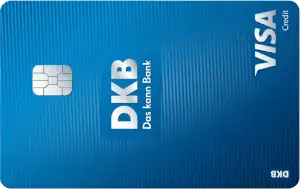
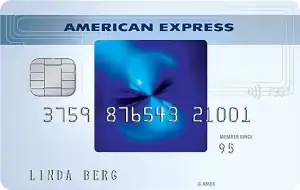
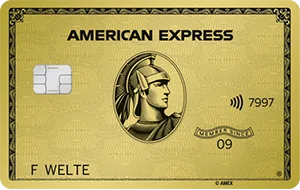
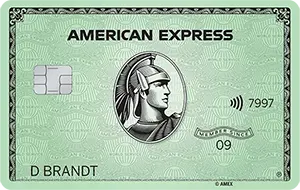
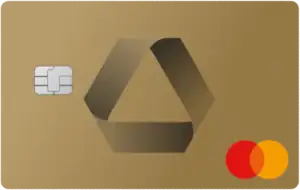
Debit Cards
Debit cards deduct each payment directly from your linked bank account and do not offer a credit facility. However, they are widely accepted, easy to get — often without a Schufa check — and are well-suited for everyday use and travel.
Basic plans are usually free, though account fees may apply depending on the provider. The free Trade Republic Visa Debit Card offers attractive features such as interest on credit balances and free card transactions worldwide. Premium plans — for example, those provided by N26 or Revolut — include perks such as travel insurance, lounge access at airports, and metal cards, making them excellent alternatives to traditional credit cards.
Popular Debit Cards in Germany
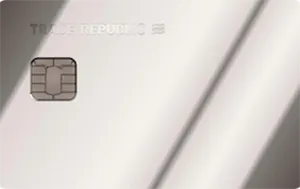
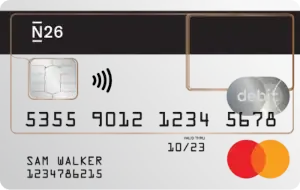
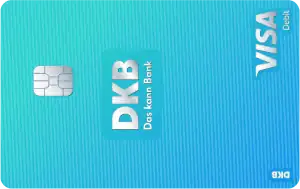
Conclusion – Is a Revolving Credit Card Right for You?
Revolving credit cards can be a practical choice for expats in Germany who seek financial flexibility and access to true credit functionality. Unlike debit or charge cards, they allow you to split payments over time, which can be helpful during larger purchases, temporary cash flow gaps, or in emergencies.
That said, this flexibility comes at a cost: interest rates are typically high, and the risk of falling into debt is real if payments are missed or only the minimum is paid. However, many users avoid interest entirely by setting the monthly repayment to 100% — using the card like a charge card while keeping the option for partial payments in reserve.
Germany offers a wide range of revolving credit cards, including premium models with insurance, cash back, and rewards — as well as completely free options that still include international usability and additional benefits. Whether you need a fallback payment method or plan to use your card regularly, there’s likely a card that fits your lifestyle and financial habits.
Frequently Asked Questions — FAQ
Yes. Many revolving credit cards allow you to repay the entire credit limit each month instead of just the minimum. If you set your repayment rate to 100% in the provider’s app or portal, the card works like a charge card, and you avoid interest entirely.
If you only make the minimum payment, the remaining balance will carry over and accrue interest. Over time, this can result in substantial credit card debt, particularly with high interest rates. It’s advisable to pay more than the minimum or set up full repayment to stay in control.
You can usually manage your repayment preferences in the provider’s mobile app. Options often include switching between minimum payments, fixed partial amounts, or full repayment. Some cards require you to transfer money manually, while others offer automatic debits from your bank account.
Common reasons include missing personal details, insufficient income, or a lack of Schufa history. Ensure that your documents are complete and that your identity has been properly verified (e.g., via a video call). If you’re new to Germany, consider starting with a prepaid or debit card first to build your credit profile.
Yes, most modern credit cards in Germany — including revolving cards — support both contactless and mobile payments. This includes compatibility with Apple Pay and Google Pay, as well as tap-to-pay functionality at physical terminals. Once your card is approved and activated, you can usually add it to your mobile wallet via the card provider’s app. Some providers even issue virtual card details right after approval, allowing you to start using your card online or via smartphone before the physical card arrives.
